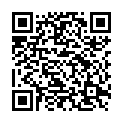|
|
|
| Module code: MST206 |
|
2V (2 hours per week) |
|
3 |
| Semester: 2 |
| Mandatory course: yes |
Language of instruction:
German |
Assessment:
Written exam
[updated 24.07.2012]
|
MST206 Mechatronics and Sensor Technology, Bachelor, ASPO 01.10.2005
, semester 2, mandatory course
|
30 class hours (= 22.5 clock hours) over a 15-week period.
The total student study time is 90 hours (equivalent to 3 ECTS credits).
There are therefore 67.5 hours available for class preparation and follow-up work and exam preparation.
|
Recommended prerequisites (modules):
None.
|
Recommended as prerequisite for:
MST605 Controlling Mechatronic Systems
[updated 19.09.2013]
|
Module coordinator:
Prof. Dr. Martina Lehser |
Lecturer: Prof. Dr. Martina Lehser
[updated 01.10.2005]
|
Learning outcomes:
In this module we treat advanced concepts of the programming language C. The module aims to extend the knowledge and skills acquired in “Technical Programming 1” and to enable students to implement these ideas in a project.
[updated 24.07.2012]
|
Module content:
- Complex definitions and declarations
- Multidimensional arrays
- Pointers to arrays, pointers to functions, pointers to pointers
- Self-defined types
- Recursive functions, pointer programming
- Recursive data structures
- Data organization, ring lists
- Single and double-linked lists
- Stacks, queues
- Runtime environment and memory models
- Managing free memory space, memory functions
- Efficient programming
- Bit fields, bitwise operators
- Structure of header files and object files
- Portable programming
[updated 24.07.2012]
|
Recommended or required reading:
Brian W. Kernighan and Dennis M. Ritchie: „Programmieren in C“, 2. Auflage in ANSI C, Hanser, München, 1990
A. Willms: C lernen. Anfangen, anwenden, verstehen. München: Addison & Wesley, 2002
Peter Kirch, Ulla Kirch-Prinz: C kurz & gut. O’Reilly, 2002
[updated 24.07.2012]
|


